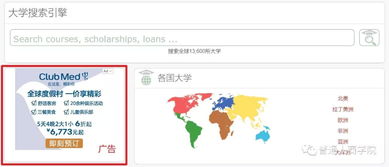QS World University Rankings: A Comprehensive Guide
Are you considering pursuing higher education abroad? If so, the QS World University Rankings are an invaluable resource to help you make an informed decision. This guide will delve into the details of the QS rankings, providing you with a multi-dimensional overview of how these rankings are compiled and what they mean for prospective students and institutions alike.
Understanding the QS World University Rankings

The QS World University Rankings, published annually by QS Quacquarelli Symonds, is a widely recognized and respected global university ranking system. It evaluates universities based on a variety of factors, including academic reputation, employer reputation, faculty-to-student ratio, citations per faculty, international faculty ratio, and international student ratio.
These factors are weighted differently to reflect their importance in the overall ranking. For instance, academic reputation is given the highest weight, as it is considered a key indicator of a university’s quality. The rankings are designed to provide a comprehensive view of the world’s top universities, helping students and institutions to make informed decisions about where to study or collaborate.
Academic Reputation and Employer Reputation

Academic reputation is a crucial component of the QS World University Rankings. It is determined by surveys sent to academics worldwide, asking them to rate the institutions they are familiar with on a scale of 1 to 10. This metric ensures that the rankings reflect the opinions of experts in the field.
Similarly, employer reputation is based on surveys sent to employers, who are asked to rate the institutions they hire graduates from. This metric is particularly important for students who are interested in securing employment after graduation.
Faculty-to-Student Ratio and Citations Per Faculty

The faculty-to-student ratio is a measure of the average number of students per faculty member at a university. A lower ratio generally indicates a more personalized education experience, as students have more opportunities to interact with their professors. This metric is given a weight of 20% in the overall ranking.
Citations per faculty, on the other hand, measure the average number of citations an academic’s research receives. This metric reflects the impact of a university’s research output and is given a weight of 20% in the overall ranking. A higher number of citations suggests that a university’s research is influential and respected within the academic community.
International Faculty Ratio and International Student Ratio
The international faculty ratio measures the proportion of a university’s faculty who are from outside the country. This metric is given a weight of 10% in the overall ranking and reflects the university’s commitment to fostering a diverse and global academic environment.
The international student ratio, which measures the proportion of a university’s student body that is international, is also given a weight of 10% in the overall ranking. This metric is important for students who are interested in studying in a multicultural setting and for institutions that aim to attract students from around the world.
QS Stars Rating
In addition to the main rankings, QS also offers the QS Stars Rating, which evaluates universities on a scale of 1 to 5 stars across 10 different categories. These categories include academic reputation, employability, facilities, inclusiveness, internationalization, innovation, environment, engagement, facilities, and facilities. The QS Stars Rating provides a more detailed and comprehensive view of a university’s strengths and weaknesses.
Ranking by Region
The QS World University Rankings are available for various regions, including Asia, Europe, Latin America, the Middle East, and North America. These regional rankings provide a more localized perspective on university performance and are particularly useful for students who are interested in studying in a specific region.
Ranking by Subject
In addition to the overall rankings, QS also offers subject-specific rankings. These rankings evaluate universities based on their performance in individual subjects, such as engineering, business and management, and arts and humanities. This allows students to identify the top institutions in their chosen field of study.
Ranking by Discipline
The QS World University Rankings also provide discipline-specific rankings, which evaluate universities based on their performance in individual disciplines, such as computer science, economics, and law. These rankings are particularly useful for students who are interested in pursuing a specific discipline at the undergraduate or graduate level.
Ranking by University Type
The QS World University Rankings also offer rankings by university type, including research universities, teaching universities, and comprehensive universities. These rankings help students and institutions to understand the different types of universities and their strengths and weaknesses.
Ranking by Country
The QS World University Rankings provide country-specific rankings, which evaluate universities within a particular country. These rankings
